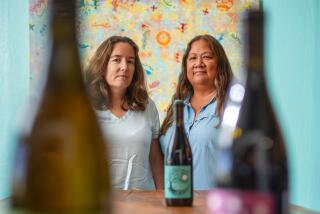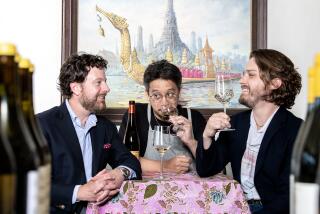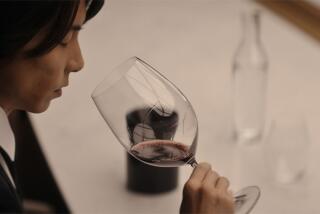A Silver Lake natural wine shop looks to do more than just move bottles
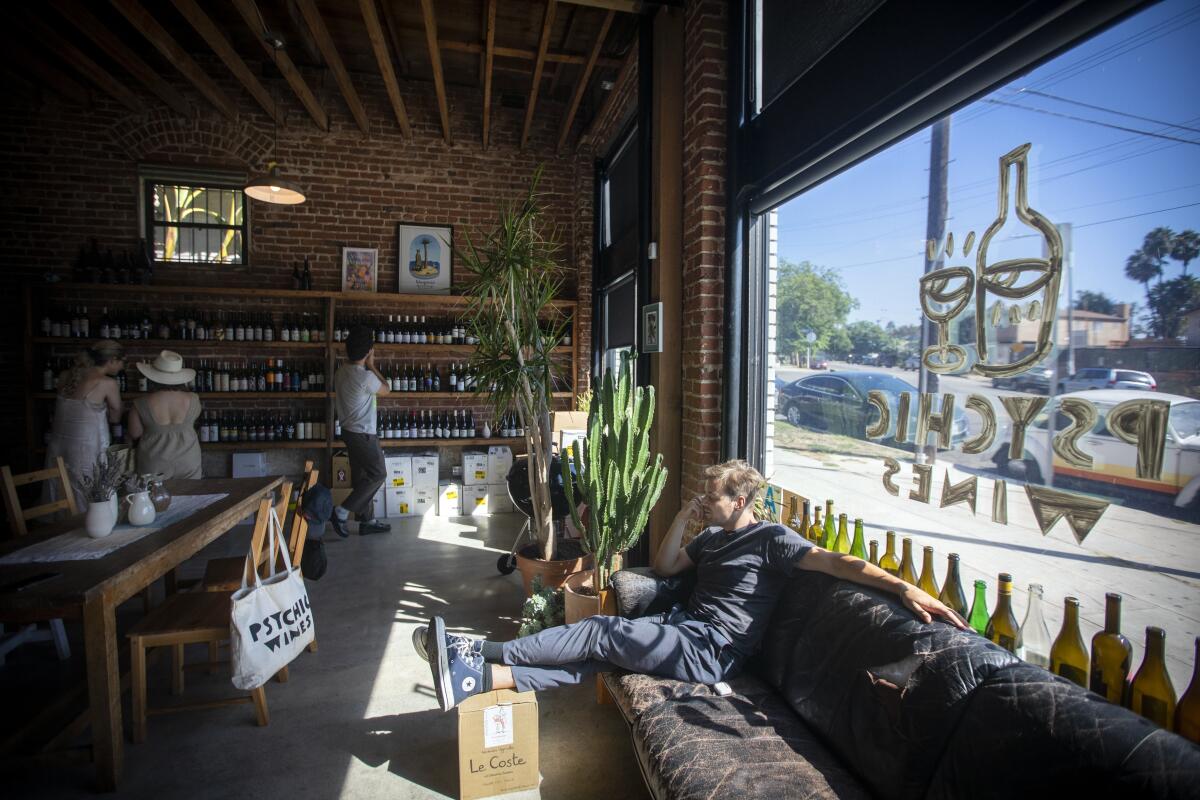
- Share via
As I pored over bottles on the shelves at Psychic Wines, I talked with one of the Silver Lake shop’s owners about spending time with winemakers abroad.
For Quinn Kimsey-White, traveling to visit the people who make what he sells is more than tourism. It’s a way, he said, to be a conduit between winemaker and wine drinker.
The French term for this role is “caviste,” a person whose job it is to assemble and share wines in a thoughtful way, typically in a shop or restaurant.
“It’s like an affineur for cheese,” said Zach Jarrett, who, along with Kimsey-White and Bradford Taylor, co-owns the shop. “We think about when things are ready to drink and hold on to bottles to help create depth for producers long term.”
Beyond simply buying wines to fill shelves, the role necessitates a certain sensitivity — meeting winemakers where they are as a means of understanding the wines they produce.
Morgan Brennan, who has worked at Psychic since it opened in July 2018, reflected on the intimacies of understanding wine through its makers.
“I always come back to everyday truisms of Laureano Serres,” he said, referring to a Catalan winemaker and shop favorite. “He’s one of the first winemakers I ever met and drinking the wines, then experiencing the wines with him — it was all him, it conveyed the exact same energy.
“The way he thinks about these wines too, as ‘vegetal water,’ that’s something I talk about with people here,” he continued. “Absorbing the way these winemakers interpret wine, to me that’s the most important thing to impart at the shop.”
The people behind Psychic support the work of these artisans with a wider lens than many wine shops would, often buying the full scope of any given release, sharing each producer’s more nuanced or offbeat bottles with as much enthusiasm and care as they do the simpler or sought-after wines.
“Some wines require a little context to be understood,” Kimsey-White said. “Others are immediate and pleasurable, and require less. A good caviste should recognize the importance of both.”
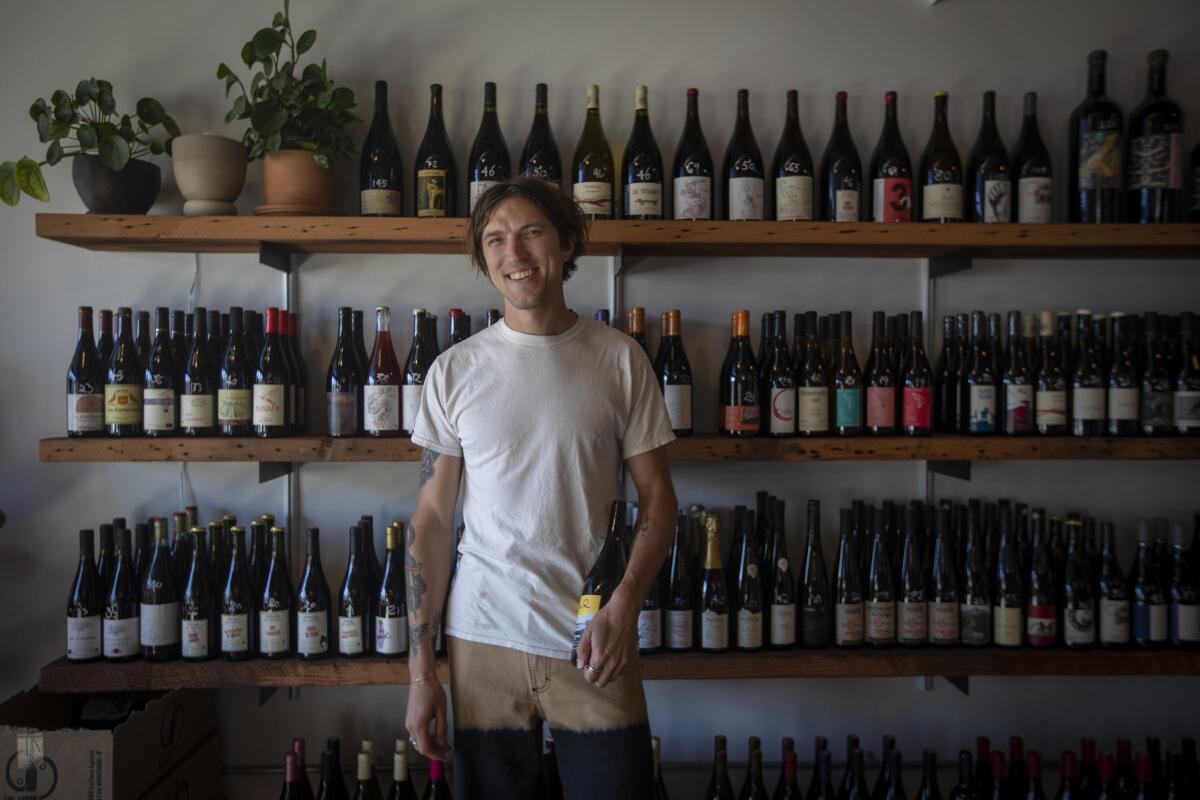
Psychic also has proven to be a reliable antidote to the stuffy-wine-shop stereotype. Its walls are dotted with posters from wine fairs, talismans from visiting winemakers, naturally dyed textiles by Misa Chhan (her studio is around the corner) and last December’s issue of Visions, a monthly zine designed by James Anderson and published in conjunction with the shop’s wine club releases. Kimsey-White and Jarrett have done the subtle work of making the place familiar, framing each conversation with customers around the idea that wine should be pleasurable and approachable.
Each month, wine club members pick up their bottles along with a new edition of Visions; every issue features a profile of the wines and producers in that month’s selection, along with a contribution from a “friend of house” — usually a recipe from someone who works in food, though not always a chef. Jarrett makes table-length sandwiches on pickup day for club members and friends who may stop by.
“Every time I walk into the shop, I feel like I’m stepping into a friend’s living room,” said shop regular and longtime Visions member Karen Brown. “I grew up stealing sips from my parents’ conventional California Chardonnay. It wasn’t until I unintentionally ordered a glass of natural Beaujolais in Paris that I tasted actual fruit. It was almost as if I had never tasted wine.
“When Psychic opened,” she said, “it was like I got to experience that feeling over and over again.”
Kimsey-White talked at length about the responsibility that comes with the moments he shares with winemakers: the vineyard walks, the cellar tastings, the meals afterward, conversations with their families and often hours in their homes. He sees it as an essential part in shortening the distance between wine drinker and winemaker, providing the space where, as Taylor put it, “Drinking wine can offer an unmediated experience of another person.”
More to Read
Eat your way across L.A.
Get our weekly Tasting Notes newsletter for reviews, news and more.
You may occasionally receive promotional content from the Los Angeles Times.
